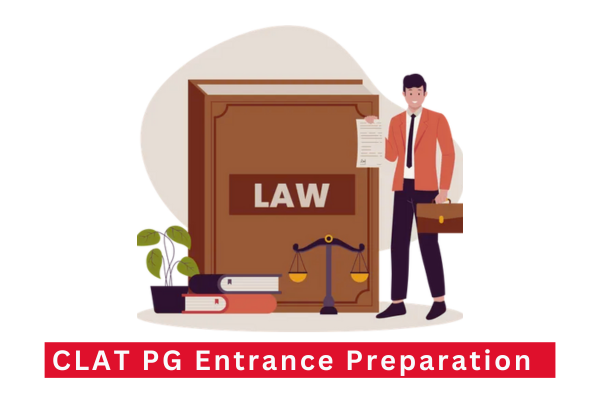
Top Ten Landmark Consumer Dispute Cases: A Comprehensive Analysis
Consumer disputes have become an inevitable part of our daily lives, as we rely on the purchase or hire of goods and services. These decisions are often based on trust, but when that trust is breached, it can lead to financial loss or even physical harm. To provide speedy relief in such cases, the Consumer Protection Act, 1986 (CPA) was enacted. Under this act, three tribunals have been established: The District Consumer Disputes Redressal Forum (DCDRF), The State Consumer Dispute Redressal Commission (SCDRC), and The National Consumer Dispute Redressal Commission (NCDRC). Over the years, these tribunals, along with the apex court, have dealt with numerous consumer disputes and have developed a better understanding of the CPA. In this article, we will explore ten important consumer disputes cases that have shaped the interpretation and implementation of consumer protection laws in India.
1. Corporate Bodies can be sued under CPA
Karnataka Power Transmission Corporation v Ashok Iron Works Private Limited
In this landmark case, the Supreme Court clarified that a corporate body is included in the definition of 'person' under section 2(1)(m) of the CPA. The court emphasized that the term "includes" is used to enlarge the meaning of the word and can be interpreted as "mean and include." The interpretation depends on the text, context, and objective of the Act. It was held that the CPA never intended to exclude juristic persons from its purview, and the definition is inclusive in nature. The court also reiterated that the word "supply" is not the same as "sale" and in the context of electricity, it would be considered a provision of service under section 2(1)(d)(ii) of the Act.
2. Professional services fall within the scope of the Act
Indian Medical Association v V.P. Shantha and others
This case dealt with the question of whether the services rendered by medical professionals fall within the ambit of 'services' under section 2(1)(o) of the CPA. The court rejected the contention that medical practitioners, being professionals and falling under the scope of the Indian Medical Council Act, are excluded from the CPA. It held that the provision of a token fee for administrative purposes does not exclude otherwise free services from the definition of services. The court also clarified that the cost of services paid by the employer or insurance company is deemed similar to the consumer paying for the service themselves.
3. Services have to be rendered with due care and in accordance with the law
Arvind Shah (Dr.) v Kamlaben Kushwaha
This case involved a complaint of medical negligence where the complainant alleged that his son died due to the administration of wrong treatment by a doctor. The State Commission upheld the complaint and provided a compensation of five lakh rupees. In appeal, the National Commission observed that the prescriptions available on record lacked essential information required by the guidelines and regulations of the Medical Council of India, such as symptoms, vital information, and prior medical history. The Commission held that the failure to include such essentials in the prescription amounted to medical negligence. However, due to a lack of direct evidence attributing the patient's death to negligence, the National Commission reduced the compensation to two and a half lakhs along with interest.
4. Prescription of allopathic medicines by a homoeopathic doctor
Poonam Verma v Ashwin Patel & Ors
In this case, a homoeopathic doctor prescribed allopathic medicines for a patient who did not respond to the treatment and subsequently died. The Supreme Court held that the right to practice allopathic medicine is restricted by the Central and State Acts, which prohibit such practice without the requisite qualification and registration. The respondent, being qualified and registered to practice homeopathy only, was found to be in violation of the statutory duty not to practice allopathy. The respondent's act was held to be actionable negligence, and he was ordered to pay a compensation of three lakhs.
5. Educational institutions must refund extra fees paid
Sehgal School of Competition v Dalbir Singh
In this case, the petitioner sought admission to a medical coaching center and was required to deposit a lump sum fee for two years within the first six months. When the petitioner left the course due to deficient services, the coaching center refused to refund the remaining amount. The State Tribunal held that educational institutions cannot collect lump sum fees for the entire course duration and must refund the extra fee if the student drops out due to deficiency. The court also noted that any clause in a contract contrary to this is invalid. Additionally, the court stated that additional compensation should be granted for the mental agony caused by approaching the legal forum.
6. Sympathy should not influence compensation
Nizam Institute of Medical Sciences v Prasanth S. Dhananka & Ors
In this case, the complainant claimed compensation for alleged medical negligence that led to partial paralysis. The National Tribunal ruled in favor of the complainant, finding medical negligence in various phases of the treatment. The Supreme Court upheld the findings but emphasized the need to strike a balance between the demands of the victim and the opposition party. The court recognized that sympathy for the victim should not influence compensation but also acknowledged the importance of providing adequate compensation. In light of the specific facts of the case, the court increased the compensation amount for medical expenses, loss of employment, pain and suffering, and other related expenses.
7. Discovery rule for medical negligence
V.N.Shrikhande vs Anita Sena Fernandes
In this case, the petitioner alleged medical negligence, claiming that a medical practitioner left a mass of gauge in her abdomen during a procedure. The Supreme Court recognized that in cases of medical negligence, there is no straightforward formula to determine when the cause of action has accrued. The court followed the 'Discovery Rule' and stated that the cause of action arises when the patient becomes aware of the negligence with reasonable diligence. In this case, the court noted that the petitioner had been experiencing pain and discomfort since the time of the operation but failed to consult a doctor. The court dismissed the complaint, considering the delay in raising the issue and the petitioner's professional background as an experienced nurse.
8. Compensation for both parents and the minor
Spring Meadows Hospital & Anr v Harjol Ahluwalia
This case involved negligence by nurses and a doctor, which resulted in a minor being in a permanent vegetative state. The issue was whether the parents of the child, who were not the patients themselves, could claim compensation for the mental agony caused to them. The court held that the definition of services under the CPA includes both the parents who pay for the services and the child who is the beneficiary. The court affirmed the compensation granted to the child for ongoing medical expenses and awarded compensation to the parents for the agony caused and the lifetime care they would have to provide.
9. Imposition of penalty for frivolous consumer claims
Sapient Corporation Employees Provident Fund Trust v HDFC & Ors
In a complaint against HDFC for debiting money without permission, the National Commission imposed a fine on the complainant for filing a frivolous complaint without sufficient grounds. The Commission noted the need to guard against the possibility of frivolous complaints due to the absence of court fees. Therefore, it imposed a fine on the complainant under section 26 of the Act.
10. Compensation for accidental double allotment of a plot
Delhi Development Authority v D.C. Sharma
This case involved an accidental double allotment of a plot by the Delhi Development Authority. The State Commission ordered the Delhi Development Authority to either provide another plot or pay the escalated price of the plot. The National Commission dismissed the revision petition and ordered the payment of compensation for unfair trade practices and undue harassment.
These ten cases have played a crucial role in shaping the interpretation and implementation of consumer protection laws in India. They have clarified the scope of the CPA, emphasized the need for due care and diligence in service provision, and provided guidance on issues such as medical negligence, educational institution fees, and compensation for victims. Understanding these cases can help consumers and legal professionals navigate consumer disputes effectively and seek appropriate remedies. Stay updated with the latest legal updates and analysis by following Legalstix Law School on Instagram and subscribing to our YouTube channel.
Disclaimer: This article is for informational purposes only and should not be considered legal advice. Consult with a qualified legal professional for specific legal advice pertaining to your situation.


.png)




.png)
